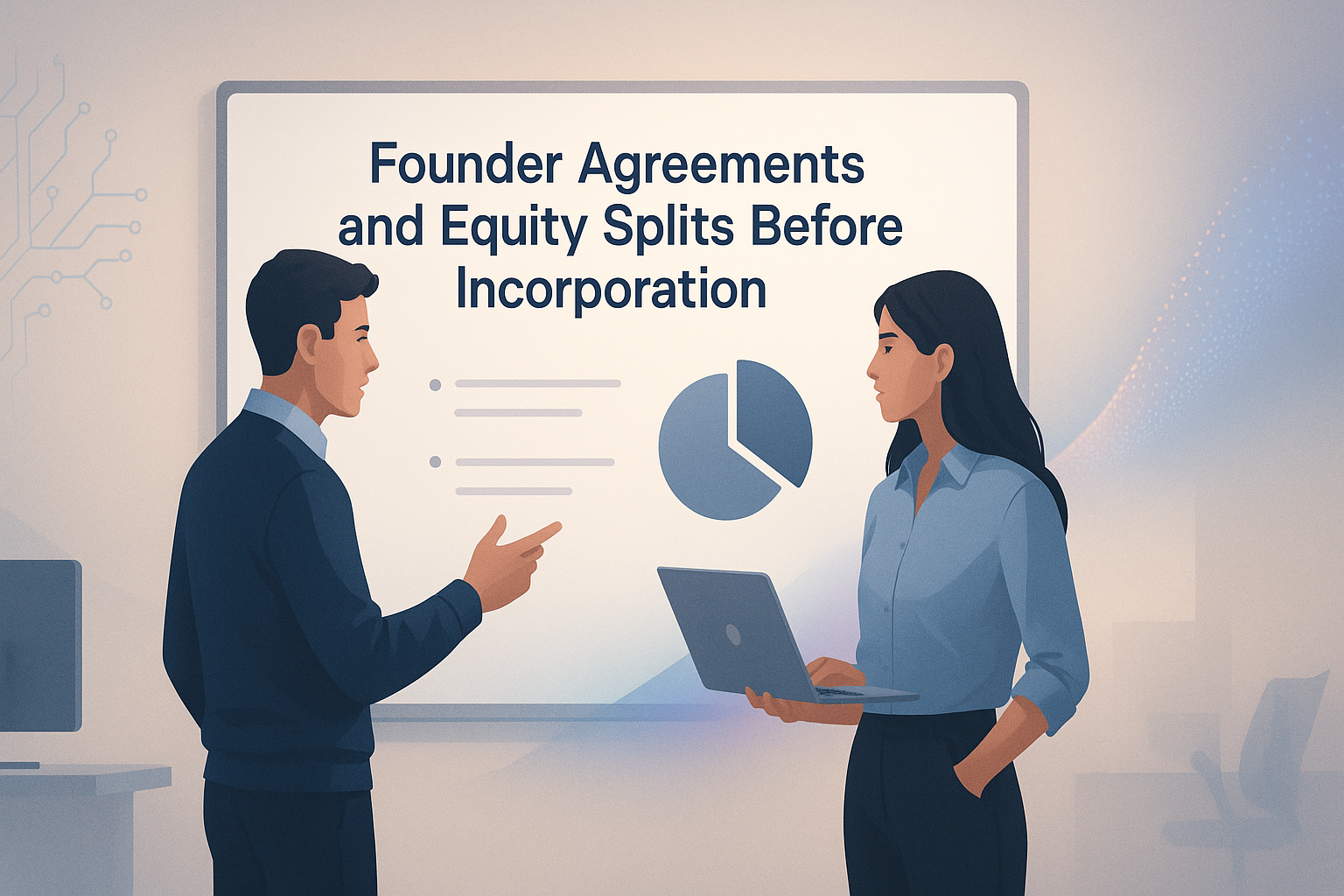Blog

Why Do I Even Need an Advisory Board?
As a startup founder, you navigate a complex landscape filled with challenges and uncertainties. One question you might find yourself contemplating is whether establishing an advisory board is necessary for your journey. While the benefits may not be immediately apparent, an effective advisory board can significantly enhance your startup's prospects. Below, we explore pivotal reasons for forming an advisory board and how it can empower your venture.

Most Popular

Provisional vs Non-Provisional Patents
Navigating the world of patents can be complex for startup founders. Understanding the distinction between provisional and non-provisional patents is crucial for protecting your intellectual property (IP) and ensuring that your innovations are secure. This post will explore both types of patents, their advantages, disadvantages, and when to consider each option.


Understanding Vesting Schedules, Cliffs, and Founder Stock Agreements
Navigating the intricacies of startup ownership often entails understanding vesting schedules, cliffs, and founder stock agreements. These concepts are critical not only for fostering a healthy equity culture but also for ensuring alignment among founders and securing the confidence of potential investors.


Should I Care About Government Funds as an Early Stage Startup?
As an early-stage startup founder, navigating the myriad of funding options available can be overwhelming. Among these, government funding initiatives often remain underexplored despite their potential to provide significant financial support and strategic advantages.

Ready to become the Captain who runs the business - not the tools?
See how Ark can transform your operations, clarity, and executive peace of mind.
Start NowBrowse All

What is the difference between a vc and a strategic investor
As a startup founder, navigating the complex landscape of financing options is vital for your company’s success. Two of the most prominent sources of funding are Venture Capitalists (VCs) and Strategic Investors. While both can provide crucial capital, their motivations, implications, and value add can differ significantly. Understanding these differences is essential to make informed decisions that align with your long-term goals.


Networking Effectively Without Feeling “Salesy”
Networking is an essential part of growing your startup, especially in the competitive tech landscape. However, many entrepreneurs struggle with the anxiety of coming off as overly “salesy.” Instead of pressuring yourself to close deals on the spot, focus on building meaningful relationships. This post will explore strategies to network effectively without the discomfort of traditional sell tactics.


The Differences Between Angels and Family Offices Every Startup Founder Should Know
As a startup founder, understanding the various funding options available is crucial to successfully navigating your entrepreneurial journey. Two distinct sources of capital are angel investors and family offices. While both can potentially provide significant support, they operate under different paradigms and have unique expectations, investment philosophies, and operational involvement.


How to Handle IP Assignment When Starting Up
In the dynamic landscape of startups, managing intellectual property (IP) is one of the most critical components for long-term success and competitive advantage.


MVPs That Actually Test Your Hypotheses
In the dynamic world of startups, the concept of a Minimum Viable Product (MVP) is foundational. An MVP serves not merely as a preliminary version of your product; it is a strategic tool designed to test your hypotheses about the market, user needs, and key features.


Founder Agreements and Equity Splits Before Incorporation
As a startup founder, navigating the early stages of your business is a critical time that lays the groundwork for future success. One of the essential steps during this phase is establishing clear founder agreements and defining equity splits before formal incorporation. This document seeks to explore why these elements are indispensable and how they can positively influence your startup's trajectory.

Navigate with Confidence
Replace endless threads and static advice with agents that act fast, know your context, and drive execution.